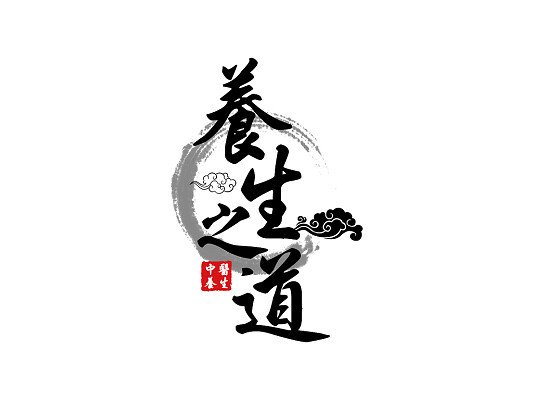The Way of Nourishing Life
養生之道
早在春秋時期的思想家老子就著有一本道家經典之作《道德經》,經考证這是迄今止為最早提出了養生的觀點的著作,並对中國傳統醫學帶來了深遠的影響。
During the Spring and Autumn period (770 BC- 476 BC), the philosopher Laozi wrote a classic of Taoism named "Dao De Jing". This work proposed the concept of "nourishing life" and is considered the earliest known work to do so. It has had a profound influence on traditional Chinese medicine (14th–11th centuries BCE).
老子曰:“人法地,地法天,天法道,道法自然。”其意思就是:自然界是人類生命的源泉,人要维持生命活動,必须顺其自然,適應自然變化的規律,認為順其自然才能去病延年。
According to Laozi, "Man follows the earth, the earth follows heaven, heaven follows the Tao, and the Tao follows nature." This implies that the natural world is the origin of human existence. To sustain life, humans must comply with the laws of nature, adjust to its fluctuations, and trust that following nature can prevent illness and extend life.
老子認為追逐名利,嗜慾無度,最容易招來壞運和傷身。老子提出人體來最富生機的功能活動是個人本身的精氣,比喻像初生嬰兒一样生機盎然。這被後世醫家稱之為元氣,漸而演化成以柔克剛 、以静制動的道家氣功基礎。
Laozi believed that pursuing fame and fortune and indulging in excessive desires is the easiest way to bring disaster, harm oneself, and shorten one's life. Laozi proposed that the most vital function of the human body is the qi/energy of true origin, which is similar to the abundant vitality of a newborn baby. This was later referred to as "yuan qi" organic energy by medical practitioners in later generations. It gradually evolved into the foundational Taoist qigong practice of using softness to overcome hardness and stillness to overcome movement.
最早的養生觀就是基於老子的順乎自然,怡淡寡欲,静柔養氣。至中醫著名經典《黄帝内經》,對老子学说中的養生觀進行了發揮阐述,有之稱為 “黄老之學”,後人稱為養生之道。
The earliest concept of nourishing life was based on Laozi's philosophy of following the natural order, being content with simple pleasures, and nurturing gentle vitality. In the famous traditional Chinese medicine classic "Huangdi Neijing," which has been treated as a fundamental doctrinal source for Chinese medicine for more than two millennia, the concept of nourishing life in Laozi's philosophy was further developed and explained. This concept is referred to as the "Huang-Lao school" and later became known as the way of nourishing life.
養生指保養、調養生命。即以調陰陽、和氣血、作息, 飲食由裡而外保持最和諧的身心靈狀態. 保精神為原則,運用調神、運動, 作息, 飲食、食養、藥養、養生和生活的關係決定了養生觀點的多面性。
養 YANG means nourish, while 生 SHENG means birth, life, or health preservation in English translation. Together, they refer to the practice of maintaining and nurturing one's physical and mental well-being. This practice encompasses various aspects, including balancing the yin and yang principles, regulating energy and blood through exercise and sleep, and eating seasonal food to sync with the natural rhythms of life, and much more.
Traditional Chinese Medicine health preservation mainly encompasses the concepts of prevention, a holistic view, balance, and a dialectical view. These concepts are further broken down as follows:
中醫養生主要有預防觀、整體觀、平衡觀、辯證觀。
Traditional Chinese Medicine health preservation mainly encompasses the concepts of prevention, a holistic view, balance, and a dialectical view. These concepts are further broken down as follows:
1. 未病先防、未老先養 Prevention is better than cure, and nurturing is better than aging.
2. 天人相應、形神兼具 There should be harmony between nature and humans, and unity between form and spirit.
3. 調整陰陽、補偏救弊 It is important to adjust the yin and yang and remedy deficiencies.
4. 動靜有常、和諧適度 Regular exercise and rest are necessary for maintaining harmony and moderation.
深度思想
其一,天人合一的養生觀。中醫認為,天地是個大宇宙,人身是個小宇宙,天人是相通的,人無時無刻不受天地的影響,就像魚在水中,水就是魚的全部,水的變化,一定會影響到魚,同樣的,天地的所有變化都會影響到人。所以中醫養生強調天人一體,養生的方法隨着四時的氣候變化,寒熱温涼,做適當的調整。
Deep Thought
The concept of nourishing life in Chinese medicine is based on the unity of nature and man. Chinese medicine believes that the universe is a vast world and the human body is a small world. Nature and man are interconnected, and people are always influenced by nature, like fish in water. Water is everything to fish, and any changes in water will affect them. Similarly, all changes in nature will affect people. Therefore, Chinese medicine emphasizes the unity of nature and man in health preservation, and the methods of health preservation need to be adjusted appropriately according to the seasonal climate changes, such as cold, heat, warm, and cool.
其二,陰陽平衡的健康觀。陰陽平衡的人就是最健康的人,養生的目標就是求得身心陰陽的平衡。什麼是陰呢?陰就是構成身體的物質基礎。什麼是陽呢?陽就是能量,陰陽是相對的,凡是向上的、往外的、活動的、發熱的、都屬於陽;凡是向下的、往裏的、發冷的、都屬於陰。身體之所以會生病是因為陰陽失去平衡,造成陽過盛或陰過盛,陰虛或陽虛,只要設法使太過的一方減少,太少的一方增加,使陰陽再次恢復原來的平衡,疾病自然就會消失於無形了。所以,中醫養生高度強調陰陽平衡,健康一生。
Secondly, the concept of Yin and Yang balance is crucial to maintaining good health.
The healthiest person is one who has a balance of both Yin and Yang, and the ultimate goal of health preservation is to achieve balance in both the body and mind. Yin refers to the material components of the body, while Yang refers to energy. Yin and Yang are relative, with Yang being associated with anything that goes upwards, outwards, is active, or generates heat, and Yin being associated with anything that goes downwards, inwards, or generates cold. When the body is sick, it is usually because of an imbalance in Yin and Yang, resulting in excessive Yang or Yin, or Yin or Yang deficiency.
To restore balance, we must aim to decrease the excessive side and increase the deficient side of Yin and Yang. By doing so, the illness will naturally disappear. Traditional Chinese medicine places great emphasis on the balance of Yin and Yang for a healthy life.
其三,身心合一的整體觀。中醫養生注重的是身心兩方面,不但注意有形身體的鍛鍊保養,更注意心靈的修煉調養,身體會影響心理,心理也會影響身體,兩者是一體的兩面,缺一不可。
Thirdly, traditional Chinese medicine takes a holistic view of the unity of body and mind. It emphasizes the importance of preserving both physical and mental health, by not only maintaining and exercising the physical body, but also cultivating and adjusting the mind. This is because the body can affect the mind, and vice versa. As such, these two aspects are two sides of the same coin and cannot be separated.






